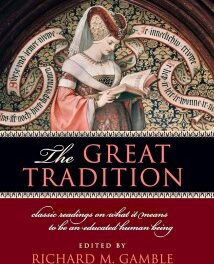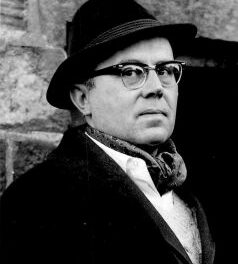We support our Publishers and Content Creators. You can view this story on their website by CLICKING HERE.
One comes away from reading Doris Kearns Goodwin’s book wishing that she might have expressed a doubt or two about the efficacy of this or that New Frontier/Great Society domestic initiative. But it is clear that the author has no doubts about the goodness of her country.
An Unfinished Love Story: A Personal History of the 1960s, by Doris Kearns Goodwin (Simon and Schuster, 2024, 467 pages
Doris Kearns Goodwin’s long-standing weakness and preoccupation are on full display in this combined history and memoir of the 1960s. More specifically, this is an accounting of her attraction to the presidencies of John Kennedy and Lyndon Johnson, as well as the might-have-been presidency of Robert Kennedy, an attraction augmented by the words and memories of her husband Richard Goodwin, who was an on-again, off-again speech writer for all three men.
Not that a young Doris Kearns had no direct role in this unfolding story, because she did. But essentially this is a thrice-told tale. It is at once the story that Goodwin told to his wife, the story of her own political awakening, and her history of both the larger story of the decade and the smaller story of her marriage to Goodwin.
The starting point for the entire project was their mutual decision to explore and then discuss the contents of box upon box of Goodwin’s papers, a decision that was not made until near the end of Goodwin’s life. Born in 1931, Goodwin died in 2018, by which point he and his wife had been married for forty-two years. Both Goodwins saw their marriage as a love story, but theirs may or may not be the only love affair of this story, unfinished or otherwise.
In a very real sense, Kearns Goodwin has now been mining her main weakness and preoccupation for better than half a century. In fact, in this book her historical mining operation comes full circle. It began in the late 1960s with Lyndon Johnson and in this volume it returns to—and ends with—Lyndon Johnson.
Between then and now her attraction to powerful presidents led her to write impressive and inventive accounts of the administrations of Abraham Lincoln, Theodore Roosevelt, and Franklin Roosevelt. And to think that it all began when a wide-eyed, twenty something graduate student was swept away by LBJ. Or was he swept away by her?
In any case, in the decades since those days of what might well have been a mutual infatuation and her subsequent publication of Lyndon Johnson and the American Dream, Kearns Goodwin managed to transform herself into a scholar of the American presidency. She first turned her newly found scholar’s eye to Lincoln and his “team of rivals,” then to TR and his fellow progressives, and ultimately to FDR and his New Dealers.
Now no longer wide-eyed, Kearns Goodwin has chosen to focus on not one, but two, presidents in a single volume. And yet in doing so she seldom looks askance at the weaknesses or preoccupations of either JFK or LBJ. Instead, she seems to be quite content to avert her eyes, while dwelling upon the hopes and dreams, ideals and vision, of both presidents.
And accomplishments? Here Johnson clearly bested Kennedy on the domestic legislative front. And failures? Once again Johnson tops Kennedy as the war in Vietnam consumed his presidency, although this was much more her husband’s view than her own.
One wonders just whom a now 81 year old Kearns Goodwin might next cast her eyes upon as she considers possible future subjects. Might she see Truman as the bridge between FDR and the 1960s? Or will she give us the Obama that he saw himself as being? Or will she reverse field by telling the story of a president who challenged Washington rather than further enhanced it?
The last is not likely, given the history of her histories. But it’s possible that her current history might someday prompt Kearns Goodwin to have some second thoughts about her past weaknesses and preoccupations. It’s possible, but again it’s not likely, given the missed opportunities in this volume to offer any serious second thoughts about the decade and its leaders.
By and large, the imperial presidency that Arthur Schlesinger came to question remains a good thing for Doris Kearns Goodwin, if not necessarily for Richard Goodwin. And their differences are occasionally on display as they poured over and prowled through the many boxes of the speechwriter/husband’s papers, especially those boxes which pertained to the war in Vietnam.
It must be conceded that Richard Goodwin was a superbly talented and productive speechwriter. Certainly John Kennedy, Lyndon Johnson, Robert Kennedy, and Eugene McCarthy all thought so. Beginning with the 1960 Kennedy campaign for the presidency, Goodwin wrote for every one of them. He even bounced back and forth between a few of them, especially early in 1968 when he went from McCarthy to RFK and then back to McCarthy.
As the sixties unfolded, Richard Goodwin was forever in the thick of things. When civil rights issues, civil rights demonstrations, and civil rights legislation dominated the first half of that decade, Goodwin was often frustrated by Kennedy’s reluctance to take political risks and eventually pleased—and surprised— by Johnson’s willingness to do so.
In the second half of the decade it was Johnson’s turn to deal with Goodwin’s concerns, concerns that grew to wrath over the fact and course of what had become the American war in Vietnam. “We shall overcome” meant one thing to Goodwin when applied to Mississippi and quite another to him when applied to Southeast Asia. Pushing to enact or impose his understanding of American ideals on the states of the old Confederacy made sense to Goodwin. Attempting to do so in Vietnam didn’t. And attempting to do so in both places at the same time made even less sense to him.
Having failed to persuade Robert Kennedy to challenge a Johnson bid for re-election, Goodwin signed on with McCarthy in late 1967. When RFK jumped in following McCarthy’s strong performance in the March 1968 New Hampshire primary, Goodwin jumped back to RFK.
Old ballplayer that he was, McCarthy insisted that he was not offended. Nor did he question Goodwin’s loyalty: “Goodwin is like a professional ballplayer. You could trade him from the Braves to the Cardinals and he wouldn’t miss his pitching turn (or) give away your signals to the other team.”
Perhaps so, but Goodwin’s ultimate political loyalty was to the Kennedys. For them he would have stolen signals, and from them he would have demanded a no-trade clause.
Kearns Goodwin’s hierarchy of loyalties is likely more than a little different. Before leaving baseball behind, her youthful weakness for and preoccupation with her treasured Brooklyn Dodgers might still top her list, Richard Goodwin or no Richard Goodwin.
In any case, sorting out all of her loyalties awaits a full-fledged, undisguised memoir. Perhaps such a memoir might also give us a more steely-eyed look at the 1960s than can be found in this love story.
Surely, such a look is missing in these pages. But possibilities loom in the insertion of the adjective “unfinished” in the title. After all, exactly what is unfinished in the mind of Doris Kearns Goodwin? By her own telling her marriage to Richard Goodwin was a solid and happy one that ended with his death in 2018.
To be sure the two had their political differences now and again, especially over LBJ, whom Kearns Goodwin has long regarded as a sadly tragic figure, rather than someone to be loathed. She was—and remains—saddened by his political demise, but she cannot—and does not—despise him.
Of course, Johnson and all the other major players, save for Goodwin friend and ally Bill Moyers, are long gone. So just what love affair remains unfinished? Perhaps it is the full agenda of New Frontier and Great Society liberalism. And perhaps that full agenda now includes the left liberalism of today.
Certainly, there is no hint in these pages that there was anything amiss about the domestic agenda of 1960s liberalism. For example, there is no suggestion that she shares any of the concerns of Christopher Caldwell that the 1964 Civil Rights Act has amounted to a second and very different American Constitution. If anything, Kearns Goodwin seems to believe that the 1960s was simply the first stage of a much larger project of American renewal, courtesy of an ever-expanding federal government.
Perhaps that prospect is at the heart of her unfinished love story. Or perhaps what will never be over for Doris Kearns Goodwin is her love affair with her country. On this score, many on the left today could learn something important from both Goodwins—namely that it’s possible to be both an American reformer and an American patriot.
One comes away from reading this book wishing that Kearns Goodwin might have expressed a doubt or two about the efficacy of this or that New Frontier/Great Society domestic initiative. But one also puts this book down knowing that she had—and has—no doubts about the goodness of her country. To be sure, that would be a country with flaws, but not one with either irredeemable or systemic flaws.
Whether Kearns Goodwin remains on hand to record the achievements of the next Lincoln-Roosevelt-Roosevelt-Kennedy-Johnson is far from certain. The best that might be expected is a free-standing memoir of her attraction to men wielding power, whether from the White House or on a baseball diamond, most likely somewhere other than in our nation’s capital where its baseball teams may be first in war and first in peace, but last in either league.
The Imaginative Conservative applies the principle of appreciation to the discussion of culture and politics—we approach dialogue with magnanimity rather than with mere civility. Will you help us remain a refreshing oasis in the increasingly contentious arena of modern discourse? Please consider donating now.

 Conservative
Conservative  Search
Search Trending
Trending Current News
Current News 






